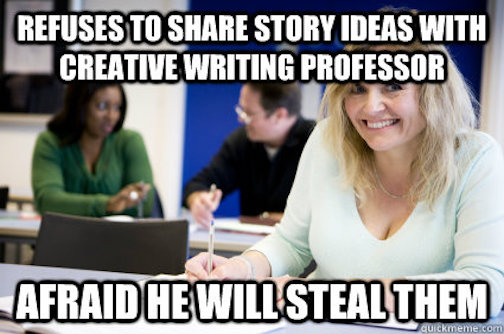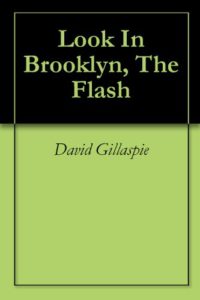Writing classes come with many disguises.
Sometimes you sign up for a class; other times it’s just walking down the street.
If you’re confronted by a mystery, then you’re set. Write it out.
Is that all there is to it?
It depends on what kind of writing you’re doing.
If you’re a museum cataloguer, the mystery never ends.
Take an object, any object.
Start with what it’s made of.
Is it wood? Good start. Hard wood, or soft wood?
Is it metal? Ferrous or non-ferrous? Get the magnet.
Once the material is identified, what was this object made for? Is it part of a bigger piece? A stand alone?
Do you notice any use-wear? Any markings from use?
Measure the object for height, width, and depth, and check for manufacturing labels, stamps, or engravings.
Finally, look into the museum collection records for similar objects. Are they a better example than the one in your gloved hands?
If the thing you’re writing about is the best of the best in its class, then it gets Category 1 designation, top of the top.
Object review: What’s it made of? How was it used? Who used it?
Museums call this provenance.
If it’s an ordinary thing, but used by someone famous, or used during a significant event, then ordinary becomes extraordinary.
If the object is an example of work done at the highest level of skill and craftsmanship, it doesn’t matter who owned it or used it.
Then there’s the extraordinary object used by a notable person. That’s the best of the best.
Museum writing doesn’t come from good writing classes. It’s a skill all by itself.
College Writing Classes
If you go to college and graduate, chances are good you’ve taken WR 121 and WR 323.
The first class helps professors in other classes reading your work; the second is a check up so you don’t embarrass the University later with poor writing skills.
The big surprise is every professor thinks they are writing instructors, not just English teachers.
History profs rag the hell out of students who don’t toe the writing line. They hate poor constructions and half-hearted arguments.
If you’re lucky you’ll spend time in class with an instructor who hates himself, hates his work, and most important, hates you for wasting his time with your drag-assed papers.
It’s worse for them if they teach night classes.
Drunk students show up with an assignment, and their girlfriend. They get chosen to read their work aloud. Instead of addressing the class, they read it to their girlfriend while the class listens in.
During a reading another student listens while clipping their lacquered fingernails, each one echoing a loud snap.
If the manicure student is in her thirties and comes to class looking like she’s on the way to a cocktail party, dressed to impress, she might be staying after class for extra credit.
Or she might be the instructor’s wife checking on the competition.
You can tell the difference when the teacher lets the clipping continue through every reading.
After Writing Class Ends
Listen to the instructor’s critique.
Don’t do this between Teacher and Student:
T: This is a college paper. You’re in college. You write like a third grader.
S: Third grade was big, man. The first time I learned about art. We made bone masks and…
T: This is a joke? Is this supposed to be funny? Who’s laughing?
S: Um, the assignment was write 500 words on a turning point in our lives. How’s the spelling?
T: All good. Spelling, grammar, structure, all good. The problem is content. Maybe it’s time to grow up. Have you thought of that? I mean, an essay on third grade? What is this supposed to be?
S: Call it a thoughtful reflection on an educational icon, a light shined on one of the little people who live large in their student’s memory. Mrs. Krause was like that for everyone. And one heck of a tennis player.
T: Listen, J.D. Salinger. Holden grew up. And he quit writing. Is that what you’re trying to do, quit writing? By the looks you should never start. This is 121, kid, just try and pass, okay, and give me a good review.
S: I’ll try harder next time. Or maybe I could re-write this assignment? I’ll make it more interesting for a burned out grad student whose writing interest was staying in school one step ahead of the draft. Now the draft ended and you’re stuck reading crap from nineteen year olds.
T: I’m not a draft dodger.
2
S: When you were my age that’s all that mattered. You knew guys going over; knew guys who didn’t come back. The one’s who came back were never the same. You were scared shitless at nineteen.
T: Man, I was frightened to death. We all were. Real death. Like death in a draft notice. Death in the mail.
S: It was a killing time.
T: And no one noticed. People left and that was it. We didn’t see bodies in the streets, just people missing.
S: You want to be nineteen again, and every essay, every piece of class writing you read tells you the same thing. Never. Going. To. Happen. Ever.
T: I loved third grade, too. It was perfect timing with the teacher, friends, and my town.
S: Maybe that’s the way you should look in your writing. Third grade is happening.
T: You’ve inspired me.
S: Don’t steal my stuff, Professor.
T: I’m sorry. What? Our meeting is over. Send in the next student. Oh, and would you ask the person at desk to make a copy of this?
S: That’s my paper.
T: So it is. Such a coincidence.



